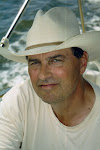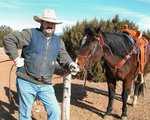Seabury Sermon: 2/22/08
Yesterday morning I woke up reciting a poem I had memorized 44 years ago for Sister Agnes Joseph in my sophomore English class at Aquinas Dominican High School on the south side of Chicago. She had asked us to memorize one of Shakespeare’s sonnets. My choice was odd for a sixteen year old. The poem is a carpe diem poem. If you saw the movie, Dead Poets Society, you heard a lot of talk about carpe diem, usually translated “seize the day.”
Carpe diem poems generally express, in some poetic way, the sentiment: “life is short and time flies, let’s make the most of it.” Often, in these poems, a male lover addresses a woman he admires and tries to convince her that loving him would be a very good idea indeed. It’s kind of a “Birds-do-it.-Bees-do-it.-Even-educated-fleas-do-it.-Let’s-do-it.-Let’s-fall-in-love.” approach to life.
What made this poem an odd choice for a sixteen year old in a girl’s prep school was that the speaker of the sonnet is wooing the addressee with the argument that he is quite old, so “time’s a wastin.’” -- love me or I may be gone soon.
Right now at Seabury, I daresay all of us are experiencing a veritable panoply of emotions. Sadness, fear, anger, confusion, skepticism, helplessness, powerlessness, paralysis, grief to name a few.
Right now, we are living in ambiguous uncertainty. It doesn’t feel good. In times like these, Carpe diem may be a helpful world view to adopt. The past is gone. We have no hope of bringing it into the present. The future isn’t here. We can’t control it. We can’t act in it. There really is no point in worrying about it. As Jesus said, “Therefore I tell you, do not worry about your life, what you will eat or what you will drink, or about your body, what you will wear. Is not life more than food and the body more than clothing? Look at the birds of the air; they neither sow nor reap nor gather into barns, and yet your heavenly Father feeds them. Are you not of more value than they? And can any of you by worrying add a single hour to your span of life?”
Although our emotional rollercoaster will continue to climb and drop, let’s seize the day. Let’s practice letting go of the past and letting go of worrying about the future. Let’s be present to one another in the here and now. Let’s be mindful of each other’s gifts. Let’s rejoice in this day, the day the Lord has made. Let’s remember that we are loved and that nothing can separate us from that love.
Yesterday morning, as I lay in bed reciting my Shakespearean sonnet, I thought how, as with the Bible, we can read and reread Shakespeare and hear it every time in a new way. As I listened to the sonnet, I heard that it was Seabury that was the speaker.
I now know that the reason I memorized this unlikely sonnet 44 years ago was to recite it to you this morning:
That time of year thou mayst in me behold
When yellow leaves, or none, or few, do hang
Upon those boughs which shake against the cold,
Bare ruin'd choirs, where late the sweet birds sang.
In me thou seest the twilight of such day
As after sunset fadeth in the west,
Which by and by black night doth take away,
Death's second self, that seals up all in rest.
In me thou see'st the glowing of such fire
That on the ashes of his youth doth lie,
As the death-bed whereon it must expire
Consumed with that which it was nourish'd by.
This thou perceivest, which makes thy love more strong,
To love that well which thou must leave ere long.













No comments:
Post a Comment